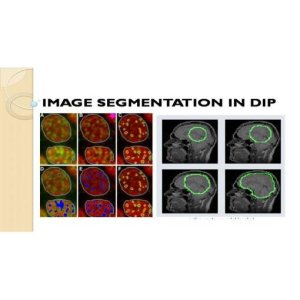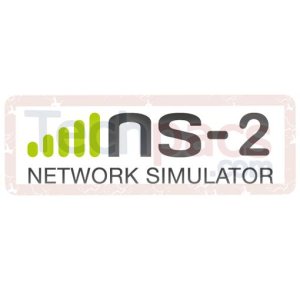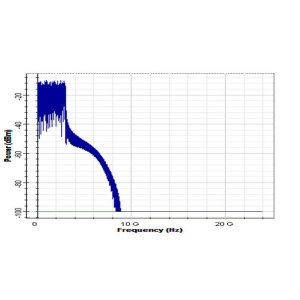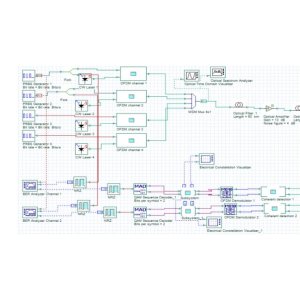Optimizing Network Connectivity through Trust Factor Enhanced Type 2 Fuzzy-Based Cluster Head Selection in Sensor Networks with Mobility Considerations
Problem Definition
The primary issue at hand in wireless sensor networks and IoT systems is the critical need for energy efficiency and cluster selection for sensor data transmission. The sensors in these networks rely on small batteries for power, and any inefficiencies in energy usage can significantly impact battery life, leading to poor data transmission and overall network performance. Furthermore, wireless communication in these systems is hindered by security and stability challenges, particularly with factors such as node mobility.
Given these limitations and problems present in the domain, there is a clear necessity for the development of a system that can address the challenges of energy efficiency, security, and stability in wireless sensor networks and IoT systems. By tackling these issues, the research aims to improve the overall functionality and sustainability of these networks, ultimately enhancing their performance and reliability.
Through the utilization of MATLAB software, the project seeks to innovate solutions that can optimize energy usage, enhance security measures, and ensure the stability of wireless communication in sensor networks and IoT systems.
Objective
The objective is to develop a protocol using soft computing technology, specifically a type 2 fuzzy system, to address the challenges of energy efficiency, cluster selection, security, and stability in wireless sensor networks and IoT systems. This protocol will incorporate a trust factor to enhance energy efficiency and security, while also considering factors such as residual energy, distance to the base station, concentration, mobility, and trust factor in the decision-making process for selecting cluster heads for data transmission. The goal is to improve system performance and reliability in various applications like smart agriculture and smart buildings.
Proposed Work
The research aims to address the critical challenge of energy efficiency and cluster selection in wireless sensor networks and IoT systems by developing a protocol using soft computing technology, specifically a type 2 fuzzy system. This system is designed to improve energy efficiency, minimize node mobility issues, and ensure secure communication in environments where sensors are powered by small batteries and face security and stability challenges. The proposed solution introduces a trust factor in the type 2 fuzzy system to enhance energy efficiency and security, while leveraging the concept of mobility to ensure system stability. The decision-making process for selecting cluster heads for data transmission considers factors such as residual energy, distance to the base station, concentration, mobility, and trust factor, using the fuzzy type 2 system. Two files have been created in MATLAB, "type 2 FOU2" and "type 2 FOU7," to implement different distance variations and enhance the overall performance of the system in various applications like smart agriculture and smart buildings.
Application Area for Industry
This project's proposed solutions can be applied in various industrial sectors that rely on wireless sensor networks and IoT systems, such as manufacturing, agriculture, healthcare, and smart cities. In manufacturing, the energy-efficient cluster selection method can optimize data transmission processes, improving overall productivity. In agriculture, the system's security enhancements can protect sensitive data collected from sensors monitoring crop growth, soil conditions, and weather patterns. In healthcare, the stability ensured by considering node mobility can facilitate real-time monitoring of patients and medical equipment. For smart cities, the energy-efficient solution can help in managing resources effectively and enhancing sustainability efforts.
Overall, implementing these solutions can lead to increased operational efficiency, data security, and system stability in diverse industrial domains.
Application Area for Academics
The proposed project on enhancing energy efficiency, security, and stability in wireless sensor networks and IoT systems can significantly enrich academic research, education, and training in the field of wireless communication and network systems. The project introduces a novel approach by incorporating a trust factor in the existing type 2 fuzzy system to optimize cluster selection for data transmission, considering factors like residual energy, distance to a base station, concentration, mobility, and trust level.
In academic research, this project provides a platform for exploring innovative research methods in the domain of wireless sensor networks, fuzzy systems, and IoT systems. Researchers can utilize the code and literature of this project to understand and implement the concept of a trust factor in enhancing energy efficiency and security in network systems. By conducting further studies and experiments using this approach, researchers can contribute to advancements in network optimization and performance.
For education and training purposes, this project offers a valuable resource for students pursuing courses related to wireless communication, network systems, and IoT technologies. It provides hands-on experience with implementing a type 2 fuzzy system algorithm in MATLAB for cluster selection in wireless sensor networks. Students can learn about the importance of energy efficiency, security, and stability in network systems and gain insights into developing solutions for enhancing these aspects.
MTech students and Ph.D.
scholars specializing in fields such as communication systems, network optimization, and fuzzy logic can benefit from this project by exploring the implementation and potential applications of the type 2 fuzzy system algorithm in wireless sensor networks. They can further enhance the existing algorithm, conduct simulations, and analyze data to extend the research findings and contribute to the academic community.
In terms of future scope, researchers can explore integrating machine learning techniques with the type 2 fuzzy system to improve decision-making in cluster selection for data transmission. Additionally, the project can be extended to evaluate the performance of the proposed system in real-world deployment scenarios and further enhance its scalability and adaptability to diverse network environments.
Algorithms Used
The project utilizes a type 2 Fuzzy system algorithm to select the cluster head in a wireless sensor network. This algorithm considers various input parameters such as residual energy, distance to the base station, node concentration, mobility, and trust factor to make decisions. Additionally, a random model is employed for mobility calculations to track node movements and packets are assessed for their communication impacts to compute the trust factor.
By incorporating the trust factor into the type 2 fuzzy system, the proposed solution aims to improve energy efficiency and enhance security in wireless sensor networks. The inclusion of mobility calculations also contributes to system stability.
The decision-making process for cluster head selection is based on the fuzzy type 2 system, taking into account factors like residual energy, distance to the base station, node concentration, mobility, and trust factor. Two files, "type 2 FOU2" and "type 2 FOU7," have been developed to accommodate different distance variations in the implementation.
Keywords
wireless sensor network, IoT, energy efficiency, cluster selection, sensor data transmission, small batteries, network performance, wireless communication, security challenges, stability challenges, node mobility, trust factor, fuzzy system, decision-making process, cluster head, residual energy, distance to base station, concentration, mobility factor, type 2 FOU2, type 2 FOU7, MATLAB, soft computing, protocol development, system stability, network security, IoT applications.
SEO Tags
wireless sensor network, IoT, energy efficiency, cluster selection, sensor data transmission, small batteries, battery life, network performance, wireless communication, security challenges, stability challenges, node mobility, trust factor, type 2 fuzzy system, system stability, data transmission, residual energy, distance to base station, concentration, mobility, MATLAB, soft computing, protocol development, IoT applications, network security.
| Shipping Cost |
|
No reviews found!




















































No comments found for this product. Be the first to comment!